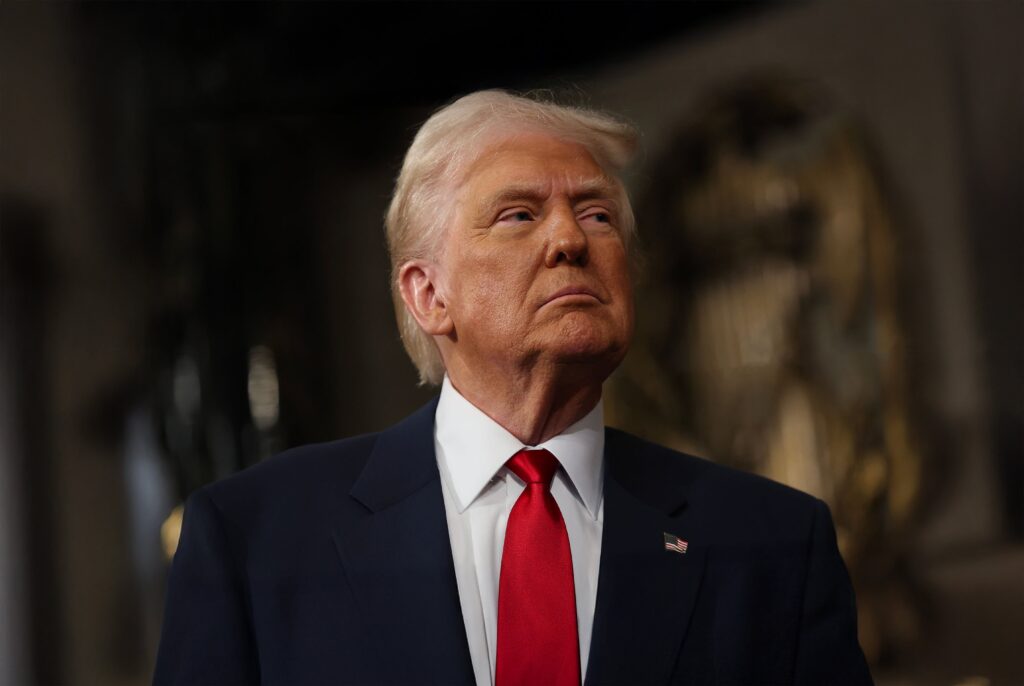US President Donald Trump has introduced a new series of import tariffs. From October 1, branded and patented medicines imported into the United States will face a 100 percent duty if the producing company does not operate a factory on American soil.
Washington will also impose a 25 percent tariff on heavy-duty trucks. Kitchen and bathroom cabinets will be subject to a 50 percent levy. Trump revealed the industry-specific measures on Thursday.
On Truth Social, he argued that a “flood” of foreign products made the tariffs unavoidable. He stressed that US manufacturers needed stronger protection.
The announcement comes despite appeals from American businesses urging the White House not to push ahead with additional tariffs.
Pharmaceutical companies under pressure
Neil Shearing, chief economist at Capital Economics, described the measure as less sweeping than it seemed. Generic medicines are excluded, along with firms that manufacture inside the United States.
He pointed out that many of the world’s largest pharmaceutical groups already have American plants or intend to build them soon.
Ireland’s Trade Minister Simon Harris highlighted a recent US-EU deal. He said the August 21 agreement capped new American tariffs on European pharmaceutical exports at 15 percent.
Figures from the United Nations show that Britain exported more than six billion dollars in pharmaceuticals to the US last year.
A separate trade agreement signed in June between Washington and London included a pledge for “preferential treatment outcomes on pharmaceuticals.”
A UK government spokesperson said the decision was concerning. Britain, the spokesperson added, would remain in close contact with US officials in the coming days.
British firms expand in the United States
GlaxoSmithKline, one of Britain’s biggest pharmaceutical firms, already runs manufacturing sites in America. Last week, it pledged 30 billion dollars for research and production in the country over the next five years.
AstraZeneca also operates US facilities. In July, the company said it planned to invest 50 billion dollars there by 2030.
William Bain, head of trade policy at the British Chambers of Commerce, stressed that these commitments should shield UK companies from new duties. He noted their heavy investment in advanced manufacturing.
In recent weeks, several pharmaceutical firms withdrew investment plans in Britain. They cited a poor business environment.
Jane Sydenham, investment director at Rathbones, said the US had become the key focus. She argued that Trump’s agenda created uncertainty and shaped investment decisions more than the UK’s sluggish growth.
Tariffs reach trucks and furniture
The new tariffs on heavy trucks are designed to shield US producers from unfair competition, Trump said. The measures will help firms like Peterbilt and Mack Trucks.
He also announced fresh duties on kitchen and bathroom cabinets, alongside other furniture. He explained that imports had surged and were hurting domestic businesses.
Starting next week, Washington will impose a 30 percent tariff on upholstered furniture.
Swedish group Ikea said the duties made business operations more difficult. It confirmed it was closely monitoring the situation.
Tariffs at the core of Trump’s agenda
Import duties remain a cornerstone of Trump’s economic strategy. In August, sweeping tariffs covering more than 90 countries came into effect. The White House framed the move as a way to create jobs and support US production.
Previously, Trump had imposed targeted tariffs on steel, copper, aluminium, cars and auto parts.
The US Chamber of Commerce warned this year that new tariffs could backfire. Many components for trucks come from Mexico, Canada, Germany, Finland and Japan, it said.
Mexico and Canada together supplied more than half of all medium and heavy truck parts imported into the US last year. The chamber cautioned that sourcing them domestically would be unrealistic and drive costs higher.
Experts issue stark warning
Trade analyst Deborah Elms of the Hinrich Foundation said the tariffs favoured US producers but were “terrible” for consumers. She warned that prices would inevitably rise.
She noted that the measures cover more products and higher rates than Trump’s earlier reciprocal tariffs, which were aimed at balancing trade.
Elms argued that the new industry-specific levies could serve as a fallback plan. They could provide revenue if broader global duties face setbacks in court.


